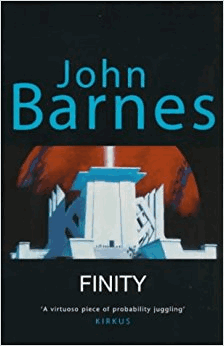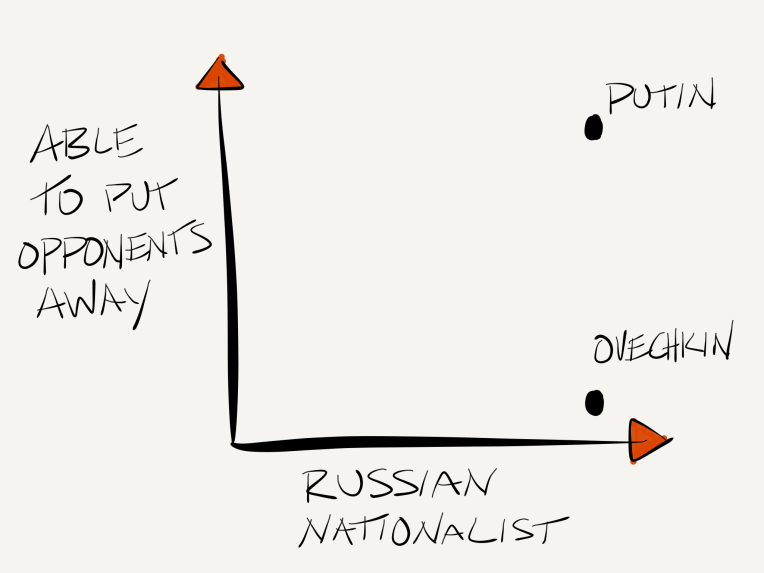This review of Finity by John Barnes was written in 2000 for the website Infinity Plus.
303pp, Gollancz/Millennium, 2000, £9.99, ISBN 0-575-06891-4
 I liked John Barnes’ previous work a lot, so I was really looking forward to reading Finity, and I’m pleased to say it doesn’t disappoint (except that I wish it could have been longer – I found myself reading slower as I got towards the end, trying to drag out the enjoyment).
I liked John Barnes’ previous work a lot, so I was really looking forward to reading Finity, and I’m pleased to say it doesn’t disappoint (except that I wish it could have been longer – I found myself reading slower as I got towards the end, trying to drag out the enjoyment).
Finity is a parallel world novel (of which there are far too few for my liking) beginning simply enough with the same premise as Dick’s The Man in the High Castle, Harris’s Fatherland and quite a few other alt.history books: namely that the Germans won World War Two.
Professor Lyle Peripart is an American ex-pat, living with others of his kind, in a New Zealand which, because of its nominally neutral stance against the Twelve Reichs into which the world has been divided, is one of a number of free, but only tolerated, backwaters. When Peripart is inexplicably offered a job with the enormous (and non-German) firm ConTech his previously ordinary life, in the best paranoid tradition, suddenly turns upside down.
Barnes does a good, if cursory, job of fleshing out his Twelve Reichs, but with good reason. Finity doesn’t restrict itself to one parallel universe but goes romping off around the multiverse, so descriptions of the differences in the worlds have to be restrained to the “Germans won World War Two”, “the South won the American Civil War” or “George Washington was assassinated before becoming president” type of sketch.
Barnes has enough material for an entire career in just this one book; that he chooses to dispose of it all in one relatively short novel is a marvel to me. In fact this is probably the book’s main shortcoming, that the excellent, fascinating and (I thought) quite funny premise isn’t even better used, because I would have loved to (would still love to – if he reads this!) seen more of Barnes’ amazing world(s).
Finity is an immediate and refreshing burst of creativity that reminded me of why I got into sf in the first place: for the action! There’s no messing about, the idea drives the story, not the characters, they are simply harried along by the snowballing weirdness surrounding them.
Despite this – and although the characterisation must necessarily be brief for the same reasons as his alt.history updates are – Barnes’ depictions of people are in excellent shorthand, giving the impression that they are real people, or might be if they were given the chance.
Except once, that is. Lyle’s fianceé says “A few months ago you were very, very drunk and you told me about something called the Many Worlds Interpretation. What was that?” (page 149)
Cue three pages of physics textbook.
I mention this only because it jars so much with the marvellous telling of the rest of the novel that I can only think it might be in ironic homage to the shameless infodumps of Golden Age sf (“Remind me again how the radium drive works, professor…”).
This is a smashing piece of hard-ish sf, but one with a toothy ending that I can’t even begin to discuss here for fear of giving it away. Suffice to say that I thought Barnes’ analysis of the American condition was an astute one.
And one final note for UK readers: the name John Barnes is in unusually large letters on the front, and people on the bus/train/street will feel the need to ask you if it’s the footballer. You have been warned!
Advertisements Share this:




